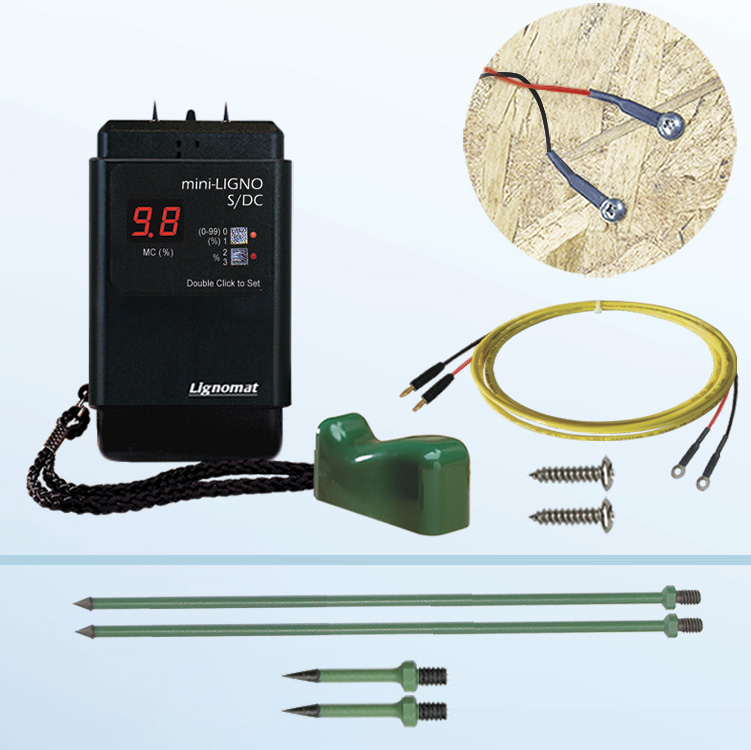The Ultimate Overview to Wetness Meters: A Comprehensive Review and Just How They Can Save You Cash
In the world of building maintenance, building, and various industries, the importance of accurately measuring wetness degrees can not be overstated. Dampness meters act as vital tools in finding and monitoring moisture content in materials, helping in avoiding pricey problems and ensuring the high quality of items. Understanding the nuances of different sorts of moisture meters, their applications, and the potential cost-saving advantages they supply can be a game-changer for specialists and services alike. Finding how these devices can not just improve procedures yet likewise add to monetary cost savings is a journey worth starting.
Types of Wetness Meters
One common kind is the pin-type moisture meter, which measures the electrical resistance between two pins inserted into a material. Pinless wetness meters, on the other hand, use electro-magnetic sensing unit plates to check a bigger area without triggering damage to the product's surface area.

Furthermore, there are also specialized moisture meters made for particular products like hay, grain, or dirt. These meters provide precise wetness analyses tailored to the distinct residential properties of the product being checked. Infrared wetness meters determine the thermal residential or commercial properties of a product to determine its moisture web content non-invasively, making them valuable for applications where pin or pinless meters may not appropriate. Understanding the different kinds of moisture meters available can help industries choose the most suitable device for their certain dampness measurement demands.

Benefits of Making Use Of Dampness Meters
Wetness meters use very useful benefits in precisely checking and analyzing moisture degrees in diverse materials and environments. One of the primary benefits of utilizing wetness meters is the avoidance of possible damages triggered by excess wetness.
Moreover, using wetness meters can lead to raised power effectiveness. In agricultural setups, dampness meters play a vital role in maximizing crop returns by making it possible for farmers to keep an eye on dirt moisture degrees and make notified watering choices.
How to Select the Right Wetness Meter
When picking a moisture meter, it's vital to ensure that the meter is suitable for the particular material you will be screening. Various products have varying electrical homes that can impact wetness analyses, so selecting a meter developed for your material is important for accurate outcomes. browse around this web-site By carefully examining these aspects, you can pick a wetness meter that satisfies your demands and offers exact moisture dimensions for your projects.
Correct Techniques for Wetness Meter Usage

Expense Savings Through Dampness Meter Applications
Exactly how can the critical use of moisture meters cause considerable expense savings throughout numerous industries? Dampness meters play a critical role in expense savings by protecting against prospective damage and guaranteeing top quality control in different markets. In the farming market, wetness meters help in identifying the optimum time for harvesting plants, stopping excess or over-drying wetness that can influence the end product's high quality. This specific tracking aids farmers prevent unnecessary losses and maximize their return.
In a similar way, in construction, dampness meters assist prevent costly problems by spotting wetness levels in building materials, such as timber or concrete, which can result in structural problems otherwise attended to quickly. By recognizing issue locations at an early stage, professionals can take corrective steps to stay clear of comprehensive repair services or substitutes, eventually saving money and time.
Furthermore, in the food processing sector, dampness meters are important for checking item high quality and making sure conformity with security policies. By precisely determining moisture material in food, suppliers can prevent perishing, keep freshness, and reduce waste, leading to substantial cost financial savings. Overall, the calculated application of moisture meters is a valuable investment that can cause significant cost reductions and boosted effectiveness throughout various Visit Website sectors.
Conclusion
In final thought, dampness meters are important tools for finding and determining wetness degrees in numerous materials. By utilizing the right moisture meter and complying with correct strategies, individuals can properly protect against expensive damages created by excess dampness.
Moisture meters serve find out here now as important tools in finding and monitoring moisture content in materials, helping in avoiding costly problems and guaranteeing the quality of items. Infrared dampness meters measure the thermal residential properties of a product to identify its dampness material non-invasively, making them useful for applications where pin or pinless meters may not be suitable.Wetness meters offer vital advantages in properly analyzing and monitoring wetness degrees in diverse materials and environments. In agricultural setups, dampness meters play a critical role in enhancing crop returns by enabling farmers to check dirt moisture levels and make notified irrigation choices.In verdict, dampness meters are important devices for finding and measuring moisture levels in various materials.